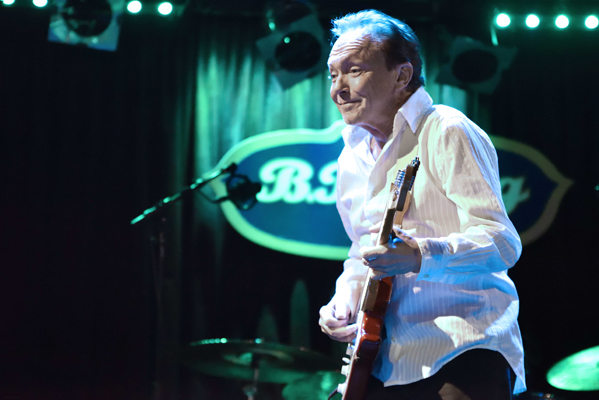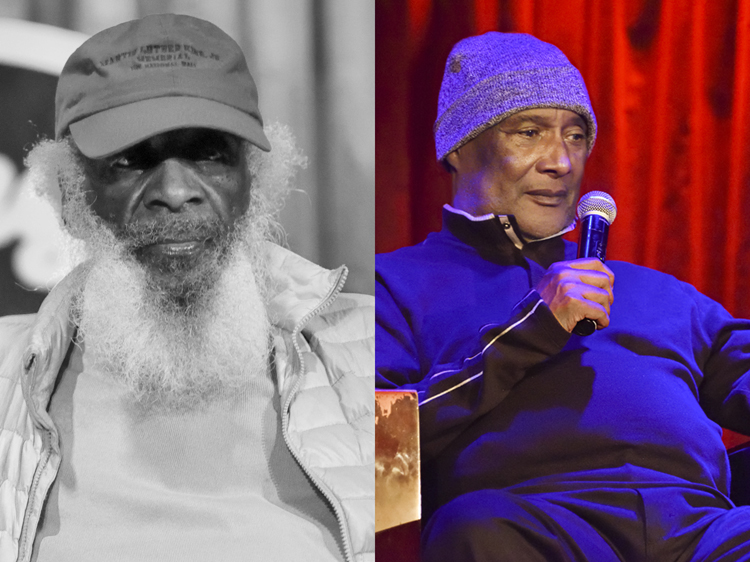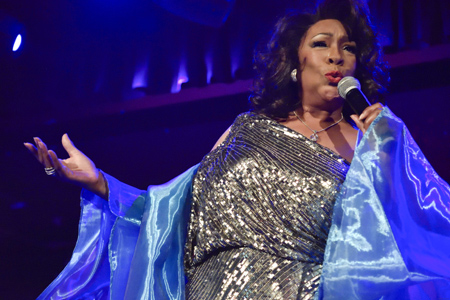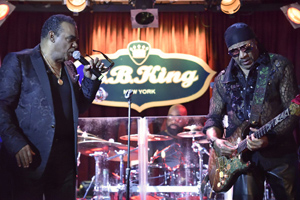 by Sal Serio
by Sal Serio
First, I must make a few disclosures in advance of this concert review. In a nutshell, I honestly did not know what to expect. My personal years of digging the band Journey were circa the ‘Infinity’ and ‘Evolution’ albums, so… late 1970s… geez, almost 40 years ago now. By the time they became a mega-huge pop band in the early 80s, my tastes in music had changed toward the more aggressive and/or more esoteric. Most of the Journey hits on classic rock radio were songs I truly disliked at the time they came out, since they directly flew in the face of my angry-young-man/anti-commercial attitude and lifestyle. However, we all age, and as a result we mellow out… one can’t stay an angry young man forever. Indeed, I now often find myself scouring the used record bins to reacquire LPs that I had in my youth that had been sold back in the hardcore punk rock days.
So, here I was on the evening of Tuesday, March 28, attending the Journey and Asia concert at the Coliseum in Madison as a member of the press. I had many ponderances and tried to avoid speculations. I wondered if there was still an audience for this type of concert in Madison, especially at a venue the size of the Coliseum, whose heyday was many decades earlier. I wondered if I would enjoy myself, or be caught in a quagmire of revulsion being lumped in with the members of my own generation that never went down the path of expanding their musical or artistic horizons, and never experienced anything alternative-whatsoever in their lifestyles. I wondered whether this concert would have energy and appeal. Generally speaking, I was wondering what I was getting myself in to.
And so… (cue Bugs Bunny) “tonight what heights we’ll hit, on with the show, this is it!”
 by Michael Sherer
by Michael Sherer
With David Cassidy, 66, retiring from touring this year due to the onset of hereditary dementia, I was glad to catch his last NYC appearance. Cassidy told a few stories to provide context to his 47 year career, and I’ll give some too here, as he’s had an interesting journey.
Cassidy explained from the stage that he chose BB King’s for his last NYC performance because he really likes the club and the late B.B. King himself, and due to it being in Times Square, which is where he made his acting debut in a Broadway musical. It was called The Fig Leaves Are Falling and it was in 1969 when Cassidy was 19. Although it closed after only four performances, a casting director saw it and asked Cassidy to do a screen test, whereby he moved from West Orange, New Jersey to Los Angeles and signed with Universal Studios soon after arriving. He then appeared in a few T.V. shows, but of course his big break came the following year when he landed the role as Keith Partridge in the show The Partridge Family. The program, which ran through March of 1974, was about a musical family with the lead being matriarch Shirley Jones, Cassidy’s actual step mother in real life. While Cassidy was signed primarily for his teen idol looks in addition to being able to act, he convinced the show’s musical producer Wes Farrell that he was good enough as a singer to be the family’s lead vocalist, rather than Jones, who was and is an actual singer. They then soon had a big hit with “I Think I Love You,” composed by Tony Romeo.
 by Michael Sherer
by Michael Sherer
These two veteran comics make for a good pairing and have been appearing as a double bill for a few years. Mooney, 75, goes on first. He has a background that involves a lot of comedy writing in addition to being a comedian himself. He made his mark as a writer for one of the legends, Richard Pryor, during the ‘70’s as well as for television’s Sanford & Son, Good Times and In Living Color, as well as several films. Gregory, 84, has been quite involved in activism, human rights and health issues. He ran for the mayor’s seat in Chicago against Richard Daley in ‘67 and then for President of the United States in ‘68 as a write-in candidate of the Freedom and Peace Party, which had broken off from the Peace And Freedom Party. He garnered 47,097 votes and wound up on Nixon’s master list of political opponents. Despite Gregory’s racially charged material, it was Hugh Hefner that gave Gregory a huge break when hiring him as a regular at his Playboy Club in Chicago in the ‘60’s. Both men made their home in Chicago at the time and this was Playboy’s first club.
 by Michael Sherer
by Michael Sherer
Mary Wilson has been a part of the music and cultural fabric for about fifty five years through being an original member of The Supremes. Coming from humble beginnings in the Brewster-Douglass Housing Projects in Detroit, The Supremes were one of Motown’s earliest signings in ‘61 since Berry Gordy formed it in ‘59. It’s been forty years since Mary left The Supremes, at which point they disbanded. Diana Ross left in ‘70, with various members coming and going in the intervening years. It’s the original trio of Mary, Florence Ballard and Diane Ross (changed to Diana) that’s most fondly remembered by most true fans.
 by Michael Sherer
by Michael Sherer
The Isley Brothers are one of the most legendary and important groups in R & B and music period. Among other distinctions, they have a major one of being the only group to have been in the top 50 of the Hot 100 charts during the ‘50’s, ‘60’s, ‘70’s, ‘80’s, ‘90’s and 2000’s.
Founded as kids in ‘54 in Cincinnati Ohio, they consisted of brothers Ronald, O’Kelly, Rudolph and Vernon Isley. They were initially a gospel singing group until Vernon’s death a few years into their existence after he was tragically hit by a car at the age of thirteen while riding his bike in their neighborhood. This devastated the remaining three brothers and they temporally disbanded out of major grief. It wouldn’t be until ‘59, and after having relocated to Englewood, New Jersey that the young men found formidable success, as their first big hit song that year, “Shout,” went on to sell over a staggering million copies. After bouncing around between a few record labels, including Motown, they would find their true calling with a more funky, hybrid and sophisticated sound in the late ‘60’s. By then they were on their own resurrected label, T-Neck, which had previously been distributed by Atlantic Records a few years prior. It was shut down after some time when Atlantic dropped them and they tried their luck on Motown. Seeking much more artistic and overall control, they resurrected T-Neck in ‘68 with Buddah Records now distributing it. (That would change again to the much more powerful Epic in ‘73.)
- Partners -
Search Live Show Reviews on Maximum Ink






